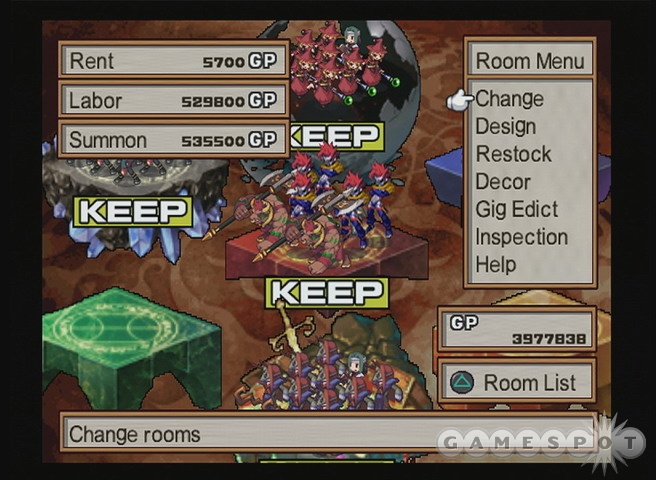

In fact, the battle scenes are quite like Ogre Battle in combat, the action moves away from the hex grid and onto a 2D side-view screen similar to Advance Wars, allowing each troop to launch his attack. This adds a fair bit of strategy to building your teams, and the entire deal comes across as a combination of Disgaea and Ogre Battle. Different characters will have different attacks based on placement a cleric, for instance, will smack a foe with his staff if placed in the front row, but will cast a healing spell that affects the entire troop if placed in the back row. However, aside from orders to attack and a commander's use of special skills, the only control the player has over the battles is before a stage even starts, in unit placement.Įach troop is placed in a 3x3 grid called a "room," with columns corresponding to the front, middle and rear. Instead of having battle waged by single units like most strategy RPG games, each unit that moves around the tile-based battle maps is its own separate small troop of three or four units with a commander.

However, the writing aside, the changes that Nippon Ichi made for Soul Nomad are both startling and well-implemented. It almost comes across as a particularly raunchy anime, honestly. From Gig's overwhelmingly casual, joyous view on massive genocide to a young boy trying to encourage his (surrogate) mother to increase her bust size due to his preference of "jiggly" chests to a rather awkward (and thankfully non-illustrated) scene involving Gig casually "checking out" his new female host body, a good half of the humor left this reviewer feeling like he needed a long shower to erase all of the sleaze. However, while most of the in-game dialogue reeks of generic NPC, there are certain moments that will make you laugh, and certain others which will possibly invoke a decidedly different set of emotions in you. Unfortunately, aside from Gig, who is a self-proclaimed badass in the vein of Makai Kingdom's Zetta, the game presents both slightly lacking dialogue and voice work. Gig is the source of most of the game's choices, as well as most of its humor Soul Nomad's sense of humor may be significantly darker than that of most Nippon Ichi games, but it's just as unrelenting - when it shows up. The more of Gig's power that is used, the more the evil god will take over the human's body. The catch? Gig is hardly a complacent pawn in these plans, speaking out quite often and only offering the hero his powers at a price.

Just like that, the fate of the world - and your own soul - has been thrust upon you, a hero destined to use Gig's power to defeat the World Eaters, three titanic monstrosities that were previously employed by Gig to unleash havoc and chaos upon the world. Instead, you are given an elegant, deadly looking sword - a sword that is ever so conveniently the weapon within which Layna sealed the spirit of Gig, the god of death, 200 years ago. Danette gets her choice of various implements of destruction, but you have no such choice.

Near the beginning, the now-aging elder Layna offers you and your childhood friend Danette two very special weapons. On the other hand, unlike other games that place the player in this role, Soul Nomad presents a lot of choices but subtly deigns to remove from you the most drastic choice in the title. Sadly, yes, this does mean that your main protagonist is of the expressionless mute variety, playing as a paper doll for your own choices and being railroaded throughout cut scenes. After a fair bit of backstory, you're presented the option to choose the name and gender of your character. The story starts on the continent of Prodesto, where an ancient, unimaginable evil was sealed away two centuries ago by a sorceress and ruler of considerable power named Layna. The latest of N1's games, Soul Nomad deviates drastically from the universe that is home to titles such as Disgaea and Phantom Brave. Take, for example, Soul Nomad and the World Eaters. While very few of their games stray from the grid- and turn-based tactical roots, and even fewer stray from the comedic, tongue-in-cheek influences of Disgaea, each and every one of Nippon Ichi's games has had a little something new thrown in, something that makes it drastically different from its brethren. Though Nippon Ichi was a totally unknown company back when it released Disgaea, the strategy/RPG development company has expanded its hold on American gamers, becoming almost as notable in the RPG industry as Square Enix.


 0 kommentar(er)
0 kommentar(er)
